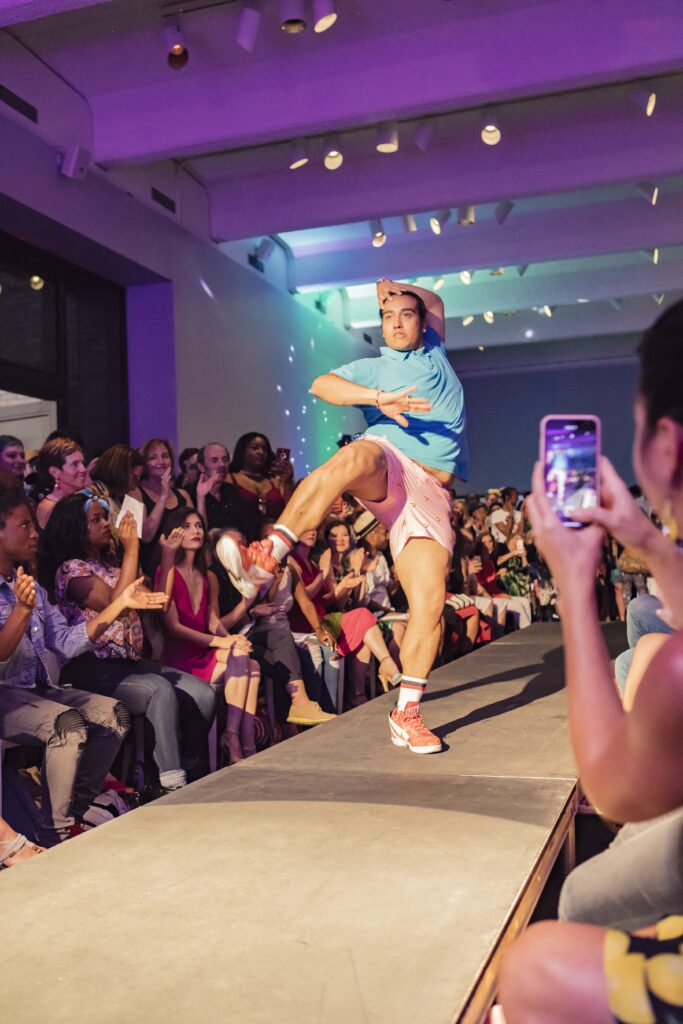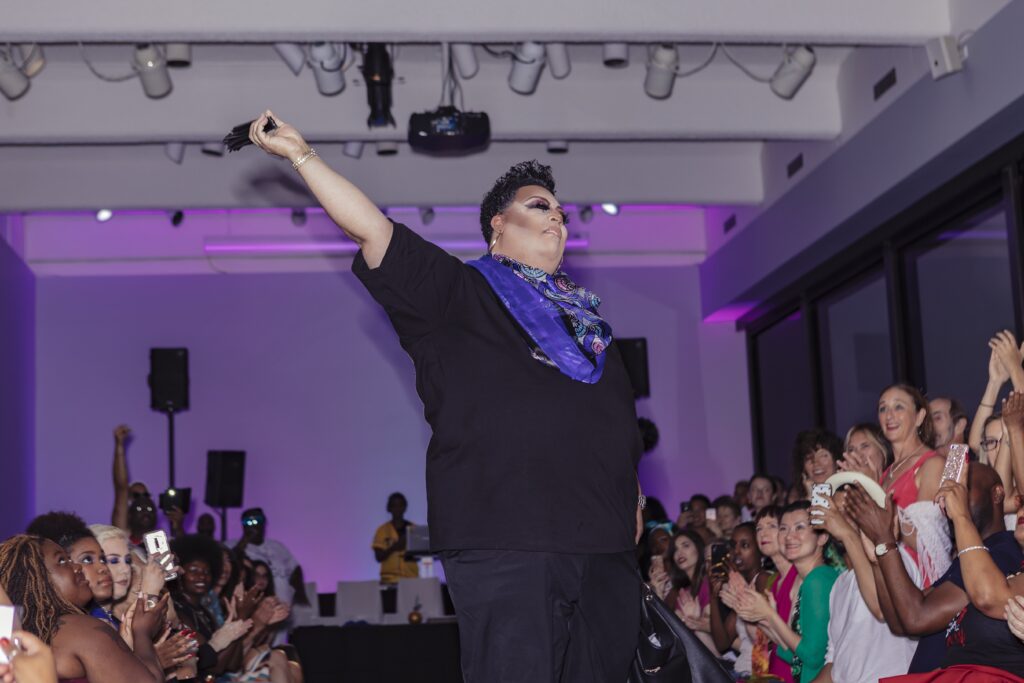You Can’t Have One Without Giving Side Eye to the Other: On the Entanglement of Gender and Genre
Reckoning with the notion of categories, finding words that perform both noun and verb, and feeling for liberation without the logic of difference

What does it mean to have a gender? Or, put more strategically, what does it mean to have your gender? Is there a way of innately knowing what your gender identity is without comparing it to others?
Thinking along these lines, as she’s contemplating what she calls “the female identity enclosure,” Trinh T. Minh-ha asks, “How am I to lose, maintain, or gain an (fe/male) identity when it is impossible to me to take up a position outside this identity from which I presumably reach in and feel for it?”1 A tactile, affective process, reaching in and feeling for something. It suggests at least a few things: 1) that you know the thing for which you’re looking and can recognize it by feel; 2) that the thing for which you’re looking exists within a known space; and 3) that the relationship between the thing you recognize by feel and its presumed existence in a sure location is something that can really only be determined from an outside perspective. It’s this outside perspective that presents a bit of a problem here. That perspective can only be occupied by someone who can say, usually impolitely, “You’re different. You’re an other.”

The idea of rooting around internally, hoping to catch hold of and then pull out one’s gender, like a rabbit from a hat (it’s magical AND furry!) is both wistful and instructive to me. Now it may seem odd to you to think about reaching inside yourself to find your identity, looking at yourself from the outside as if you’re a spectator waiting for the show to start. Or maybe that resonates with you deeply. Folx who build themselves, rebuild themselves, get their affect, can snap up to that.2 But the question Trinh asks sheds some uncomfortable light (like the fluorescents coming on at bar close) on this reaching, this building process. From where, she asks, are we getting our directions to build, and how does that location determine how or if we can really follow them?
Consider the words “genre” and “gender.” Notice anything? Yup, that’s the same root word. The root is both noun-ish and verb-ish and aligns with contemporary words that are also nouns and verbs, like “birth,” “order,” “name,” and “rank.” “Gender” and “genre” are dependent on each other for existence and meaning. You simply can’t have one without the other. So if we study Trinh’s question about location, then we can wonder where we would have to be to reach in and feel for a gender/genre. Spoiler alert: Trinh argues that we can’t leave the space of oppression from which we’re trying to liberate ourselves through a logic of difference. In other words, using the language of gender/genre to burst through its limitations just isn’t going to work. Sorry if that’s a bummer, but Audre Lorde did try to tell us.3
The issue Trinh points out is a salient one, and the enclosure she’s describing here represents a practical problem of categorization, of how we name things because we want to do stuff with those things. What we do when we’re naming gender, when we’re trying to establish difference in order to neutralize toxicity and get free, however, may be the thing that keeps us trapped in that enclosure.

Pause for a story about sex.
There’s this cutie. Cutie has some ideas about being this or that (or not) and so goes out into the world to see if the ideas hold (or not.) And in the process of this-ing or that-ing, cutie has sex with another person and it goes great (or not), but now this cutie is on a whole nother level because sometimes sex makes you think about your body and its attendant tropes not just ideally but like, logistically. And now this cutie has CHOICES and some of them feel good (or not) and it’s no longer clear where biology ends and ideology begins. Or vice versa.
Maybe this cutie’s story resonates with you. Maybe you’ve seen this cutie on the apps and you think one of you is in the wrong place. Maybe you are this cutie. In any case, it’s hard to understand your gender absent of sex (“sex” is also both noun and verb—surprise!) because we just don’t live in a society where gender is served buffet-style and you can have as much as you want for $7.99. What we do have is a system of keen identification in which you either unproblematically align with whatever sex was documented at your birth, or you play with that paperwork (like on the dance floor or on Halloween), or you burn those papers altogether in an attempt to redeem yourself. The biological determinism we work with or through or against is real, and it’s from this deterministic standpoint that we run off into AF/MAB unicorn pastures. And maybe you’re as over unicorns as you are COVID, but that doesn’t change the facts of realness. We know that gender doesn’t come with a birth certificate, but it also doesn’t come with just a feeling (see what I did there?) It does come with an understanding that there is something like a genre into which it can fit. Yes, even agender and fluid genders and ballroom genders (why else would they call them “categories”?)

Returning to Trinh’s question about positionality will help us think through the kinds of impossibilities we’d need to identify as, say, a “butch queen up in drags first time at a ball.”4 She asks this question because the difference that is necessary for her to speak resistantly is the same thing that makes it impossible for her to speak. To wit: to speak from a position of difference is to reify a notion of center, a center always returned to White male supremacy. Difference, in this sense, is always rendered as “a difference from,” where the “from” takes up all the space. I like this question because it points to a number of complexities about the promise of knowing oneself at the same time that it ponders how one can know oneself.
The question shows us how tough a spot Trinh’s in. She’s writing in 1989, the year that tanks rolled into Tiananmen Square and people took sledgehammers to the Berlin Wall. In this postmodern geopolitical moment, she and other scholars were writing using all the punctuation tricks they knew to express their suspicions of Anglo-European metaphysics. As one response to this question, Trinh takes up the notion of “becoming” as a mode of being, a kind of always-en-route-but-never-arriving way of thinking about identity, and notes that this idea, while emerging within a feminist discourse aimed at liberating women from a perceived constituent “man-ness” might be illusory at best, and necessitating a kind of anti-intersectional, logistically White subjectivity at worst.5 It’s a lot to have to deal with, and there’s not even [insert your favorite social media app here] yet.

And since we’re talking about the future-yet-to-come from a not-quite cold war past, let’s acknowledge that the term “third world” is super problematic and no longer being used to describe countries or regions (scholars of the Global South, I see what you did there and I hope you’re okay), and, as a modifier, has likely been replaced with terms like “postcolonial,” “decolonial,” or “anti-colonial.” The term’s use as a way to reckon with the new world orders offers a hierarchy to think through that might be handy in considering genders/genres and ranking, naming, building, or it might work as a punch line for a stand-up comedy routine that self-reflexively notes how hard it is for a Black, Brown, or Indigenous transqueer to get a Netflix special, but that’s another essay. And though there is a good argument for keeping the historical accuracy of this term of art in mind as we consider identity formation in the 21st century, its use here is merely quotational. Additionally, in this 2022 essay I understand that sex is not the same as gender when you’re trying to distinguish chromosomes from an otherwise manifest destiny; however, the two remain connected (see above.) I also understand how the stakes of identity formation are pretty high these days, when asserting your gender identity can be both the thing that saves your life and the thing that puts it in jeopardy.
One of the things Trinh contemplates in her films, notably in Surname Viet Given Name Nam (1985), is the necessary impossibility of orienting one’s language away from oppressive categories. In her 2021 video essay “Virtually Asian” screened recently at the Walker, Astria Suparak explores the absenting of actual Asian people in technofuturist Hollywood sci-fi. The sharpness of their critiques, read alternately as fury, frustration, sardonicism, weariness, and even a kinky kind of desire, is the click that engages the viewer, and, if you’re like me, it’s the thing that leaves you wide open, wondering just what, exactly, you’re supposed to do now. In that spirit, I ask you: should we try to take off our genders and let our tender identity bits just hang out, hoping for something soft to rest them on? Should we all just identify as “girl,” use the pronouns “she/her” and let history figure out the rest? What if we looked to languages that don’t use gender-based pronouns? Would that work? What if we centered ourselves around vulnerability and thought about difference only through mechanisms of care? What if gender/genre were less about degrees of difference and more about conditions of change? What if there was a gender lottery and you won it and all your clothes fit perfectly and you looked amazing everyday forever? Wouldn’t that be something?

Photos from Vogue Night, part of the Terrace Thursdays series at the Walker Art Center, July 12, 2018. Hosted by Fatha Jazz Bordeaux, 2019 Midwest Awards Ball Commentator of the Year Nominee, and featuring DJ Niesha and DJ BEARCAT.
Categories were open to all on the night of the event, so performers’ names were not documented, but if any of the performers pictured here would like to be credited, feel free to reach out to mnartists@walkerart.org.
For more on Twin Cities ballroom, read this interview with Fatha Jazz Bordeaux, published on the Walker Reader in 2016.